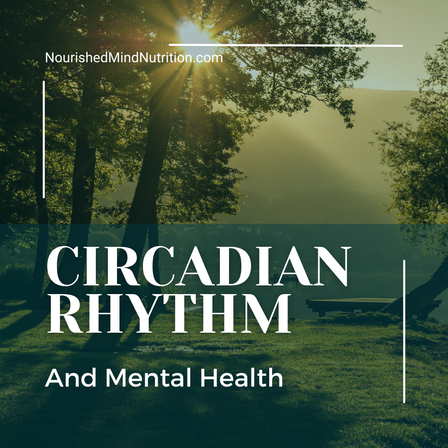|
You probably know that sunshine can boost vitamin D levels. But did you know that getting enough sunshine, especially in the morning, can also help with sleep and mental health? It seems simple, but many of our schedules don’t automatically make time for it: a morning walk through the grass in the sunshine, 15 minutes on the patio while eating your breakfast, or even (for those who live in areas where it’s frequently still dark or cloudy in the morning) using an indoor UV sun-mimicking lamp. Now that it’s wintertime, it’s even more challenging for many who live in cold and cloudy climates to get the sunshine their bodies need. Sunrise, sunset Yes, sunshine is our primary natural “source” of vitamin D. (The UV-B rays of the sun actually activate a complicated chain of events in the skin that causes our bodies to produce vitamin D. While you make the most vitamin D when you’re outside when the sun is highest in the sky, early morning sunshine is considered the best for skin health, including reducing the risk of the damage that can lead to sunburn and skin cancer.) But getting out in the early morning rays is about more than just vitamin D production. And conversely, those recommendations to avoid artificial light and especially screens late at night is about more than just melatonin production (though that is hugely important). Our bodies and minds are made to operate on a “clock,” meaning that we operate on 24-hour cycles that are set by exposure to the cycle of day and night, sunshine and darkness. Here are a few of the systems and tissues in the body that function on a circadian rhythm—many of them even independently from the brain and central nervous system:
How does this apply to mental health? I think we’ve established that our bodies operate in a rhythm, a daily 24-hour cycle that is fueled by the sunlight. So what does this have to do with our mental health? The connection between sleep disturbance, circadian rhythm dysfunction, and depression is well-established. Sometimes sleep disturbances happen as a result of mental illness; other times they may cause it, and perhaps most of the time, it’s going both ways. People with major depressive disorder have different body rhythms than people who don’t have the diagnosis. For example, our body temperature changes on a 24-hour cycle, with lower core temperatures at night. For someone with MDD, their body temperature doesn’t decrease as much. Their melatonin and cortisol levels don’t change as much in the course of the day, so they might not produce enough melatonin for quality sleep or enough cortisol to get through the activities of the day. The degree of misalignment between the internal clock and the timing of actually being able to fall asleep seems to correlate with the degree of severity of symptoms of depression. Plus, there’s all sorts of other impacts that sleep disturbance can have on mental health. Insomnia increases levels of inflammation in the body, which (as we’ve discussed in other posts) can be correlated with depressive disorders. In the long term, sleep deprivation can also decrease the production of some really important brain proteins that support brain growth, elasticity, and resilience. There’s even a weakening of the blood-brain barrier, the “wall” that keeps stuff from the rest of the body away from the fragile tissue of the brain. This can let in all kinds of neurotoxic substances, leading to more inflammation. Others dealing with depression may have the opposite experience, where rather than insomnia, they find themselves sleeping too much. This is also potentially linked to circadian rhythm dysfunction, imbalance of melatonin and cortisol, and poor-quality sleep (which is very common in depressive disorders). So what can we do about it? Nothing in biology is ever quite as simple as the word “reset” makes it sound. Recalibrating or resynchronizing your body’s clocks is not as quick and easy as resetting your Wi-Fi router. But there are some fairly simple steps we can take to try to get back on track, improve our sleep, and improve our mental health. Many of these tips won’t be new to you, but hopefully you now have a deeper appreciation for their importance, and for specifically how they might improve not just your sleep, but pretty much everything else that happens in your body, as well.
Remember: it's all about starting small, incremental, gentle. Be kind to yourself. Choose one thing you can do today. Notice how little changes can have big impacts, especially when they are done mindfully and with self-compassion. Sources:
Erica Golden, RDN, LD, IFNCPIntegrative and functional registered dietitian nutritionist.
0 Comments
Leave a Reply. |
AuthorErica Golden, RDN Archives
March 2024
Categories |

 RSS Feed
RSS Feed
